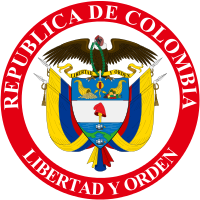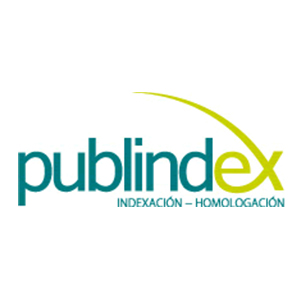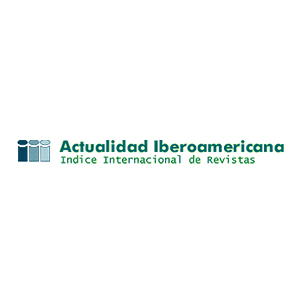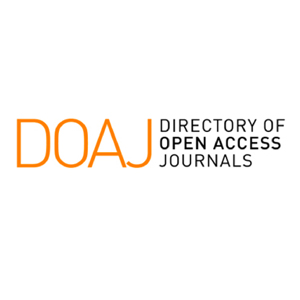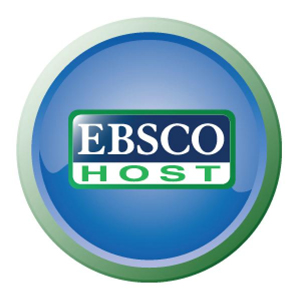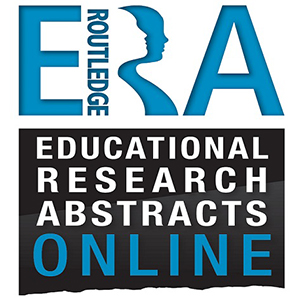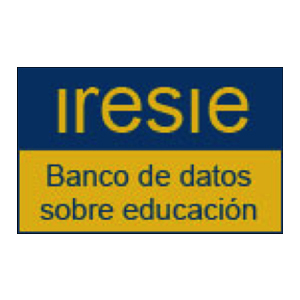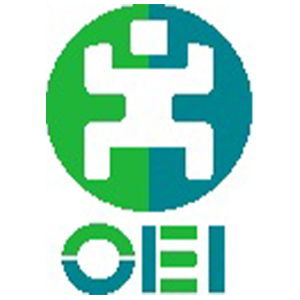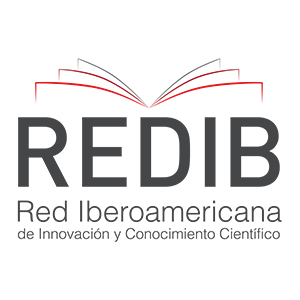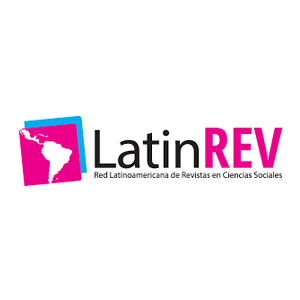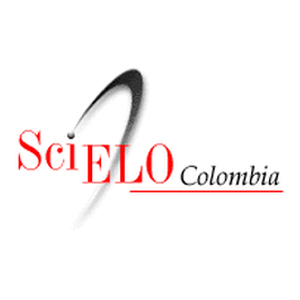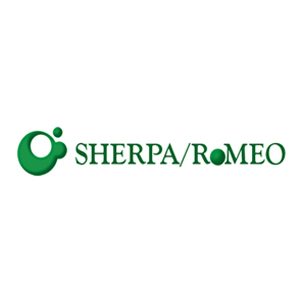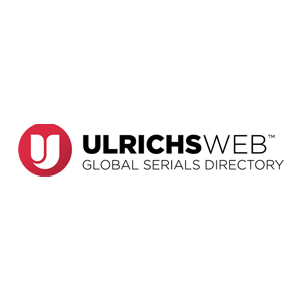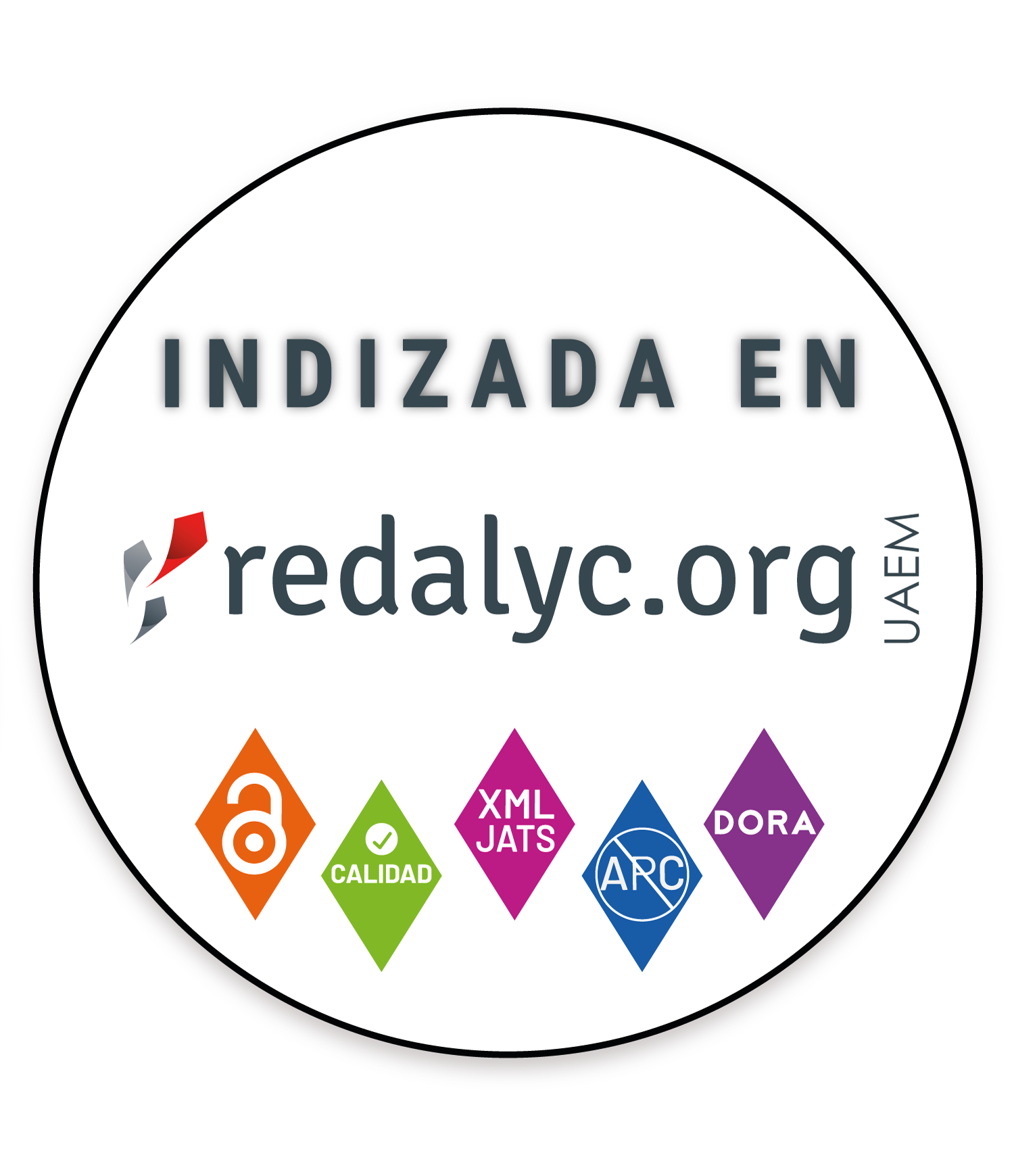Technology Integration for the Professional Development of English Teachers
Integración de la tecnología en el desarrollo profesional de los profesores de Inglés
Integração de tecnologia no desenvolvimento profissional de professores de inglês
Este documento presenta la intersección entre la didáctica de la enseñanza del inglés como lengua extranjera (efl) y el conocimiento del contenido pedagógico tecnológico (tpack) para guiar a los maestros en el uso de algunas herramientas particulares y su integración en las clases. El estudio responde a la pregunta: ¿Cómo puede la implementación de un programa de desarrollo docente en tpack impactar la enseñanza y aprendizaje del inglés de un grupo de docentes? La información se obtuvo de observaciones, entrevistas y cuestionarios aplicados antes, durante y después de la implementación de dos módulos de tecnología. Los participantes recibieron un curso de 48 horas
en el primer y segundo semestre del programa de maestría y cuatro sesiones de seguimiento sobre el tpack que usan en la práctica, asociado con las intersecciones del conocimiento, a saber, tpck, tck y tpk. El desarrollo profesional siguió cuatro etapas: a) modelado de un tipo de actividad con
tecnología; b) integración de un modelo pedagógico en la clase; c) desarrollo de habilidades técnicas a través de la planeación de clases con diferentes recursos virtuales; d) aplicación de tpack para diseñar tareas en los planes de clase. Los resultados mostraron un impacto positivo en el aprendizaje profesional para el desarrollo docente del conocimiento tpack. También revelaron que los maestros aprendieron a considerar las posibilidades de la tecnología, los problemas de acceso en sus elecciones y el uso de la tecnología en la planeación de la enseñanza.
TPACK, integración de tecnología, formación de profesores, desarrollo profesional (es)
TPACK, integração tecnológica, formação de professores, desenvolvimento profissional (pt)
Cárdenas, M. L., González, A. y Álvarez, J. A. (2010). El desarrollo profesional de los docentes de inglés en ejercicio: algunas consideraciones conceptuales para Colombia. Folios, 31, 49-67.
Covey, S. (2011). The 3rd alternative: Solving life’s most difficult problems. New York: Free Press.
Cox, S. y Graham, C. R. (2009). Diagramming tpack in practice: Using an elabo-rated model of the tpack framework to analyze and depict teacher knowledge. TechTrends, 53 (5), 60–69.
Engel, S. y Randall, K. (2009). How teachers respond to children’s inquiry. American Educational Research Journal, 46 (1), 183-202.
Francis, A. (2010). Why do some preservice teachers trust digital technology and others don’t? Conceptualizing the intersection of trust, technology, and education.(Doctoral Dissertation) Michigan State University, United States-Michigan: Unpublished 3435227.
Koehler, M. J., Shin, T. S. y Mishra, P. (2012). How do we measure tpack? Let me count the ways. In R. N. Ronau, C. R. Rakes y M. L. Niess (Eds.), Educational technology, teacher knowledge, and classroom impact: A research handbook on frameworks and approaches (pp. 16–31). Hersey, PA: IGI Global
Koehler, M., Mishra, P., Kereluik, K., Shin, T. y Graham, C. (2014). The Technological Pedagogical Content Knowledge Framework. New York: Springer Science & Business Media.
Mishra, P. y Koehler, M. (2006). Technological Pedagogical Content Knowledge: A framework for Teacher Knowledge. East Lansing: Michigan State University.
Richards, J. y Farrell, T. (2005). Professional development for language teachers.Cambridge: Cambridge University Press.
Schmidt, D. A., Baran, E., Thompson, A. D., Koehler, M. J., Mishra, P. y Shin, T. (2009-10). Technological Pedagogical Content Knowledge (tpack): The develop-ment and validation of an assessment instrument for preservice teachers. Journal of Research on Technology in Education, 42 (2), 123-149.
Schön, D. A. (1987). Educating the reflective practitioner: Toward a new design for teaching and learning in the professions. San Francisco: Jossey-Bass.
Shulman, L. S. (1986). Those who understand: Knowledge growth in teaching. Santa Clara County: Educational Researcher, American Educational Research Association.
Underhill, A. (1986). Editorials. Teacher Development Newsletter, 9,4.
Voogt, J., Fisser, P., Roblin, N. P., Tondeur, J. y Van Braak, J. (2012). Technological pedagogical content knowledge — A review of the literature. Journal of Computer Assisted Learning, 29 (2), 109-121.
Wallace, M. (1998). Action Research for Language Teachers. United Kingdom: Cambridge University Press.
APA
ACM
ACS
ABNT
Chicago
Harvard
IEEE
MLA
Turabian
Vancouver
Descargar cita
Citaciones

1. Xuan Zhou, Yolanda Padron, Hersh Waxman. (2021). Exploring the Relationship Between Professional Development Experience and Skills in Educational Technology Integration Among Primary EFL Teacher. Contemporary Educational Technology, 14(1), p.ep328. https://doi.org/10.30935/cedtech/11365.
2. Duygu ÇAVUŞOĞLU, Remzi Y. KINCAL, Osman Yılmaz KARTAL. (2023). Systematic Review of Research Conducted on the Techno-Pedagogical Content Knowledge of English Teachers. Journal of Family Counseling and Education, 8(2), p.170. https://doi.org/10.32568/jfce.1269034.
3. Ning Chen, Chinaza Solomon Ironsi. (2024). Do my accents matter? Examining the relationship between English language teachers’ linguistic profiling and career development. Career Development International, https://doi.org/10.1108/CDI-05-2023-0139.
Métricas PlumX
Visitas
Descargas
Recibido: 31 de diciembre de 2018; Aceptado: 20 de mayo de 2019
Abstract
This paper deals with the intersection of the didactics of English as a Foreign Language (EFL) and of Technological Pedagogical Content Knowledge (TPACK) to guide teachers in the use of some specific tools and how to integrate them into their lessons. To meet this requirement, the researchers conducted a study to answer the question: How may the implementation of a teacher development program on TPACK impact the English teaching and learning of a group of in-service teachers? The researchers collected data through observations, interviews, and before-while-after questionnaires in the implementation of two technology modules. The participants received a 48-hour course in technology during the first and second semester, as well as four follow-up sessions on the TPACK these teachers use in practice, associated with the knowledge intersections, namely TPCK, TCK, and TPK. The professional development was organized into four stages and workshops: a) modeling a technology-enhanced activity type; b) integrating a pedagogical model in a lesson; c) developing technical skills through different virtual resources for lesson planning; d) applying TPACK to design tasks for teachers' lesson plans. The results highlighted a positive impact on professional learning for teacher's development of TPACK. They also revealed that teachers learned to consider the possibility of using technology, access issues in their choices, and use of technology for lesson planning.
Keywords:
TPACK, technology integration, in service teacher education, professional development.Resumen
Este documento presenta la intersección entre la didáctica de la enseñanza del inglés como lengua extranjera (EFL) y el conocimiento del contenido pedagógico tecnológico (TPACK) para guiar a los maestros en el uso de algunas herramientas particulares y su integración en las clases. El estudio responde a la pregunta: ¿Cómo puede la implementación de un programa de desarrollo docente en TPACK impactar la enseñanza y aprendizaje del inglés de un grupo de docentes? La información se obtuvo de observaciones, entrevistas y cuestionarios aplicados antes, durante y después de la implementación de dos módulos de tecnología. Los participantes recibieron un curso de 48 horas en el primer y segundo semestre del programa de maestría y cuatro sesiones de seguimiento sobre el TPACK que usan en la práctica, asociado con las intersecciones del conocimiento, a saber, TPCK, TCK y TPK. El desarrollo profesional siguió cuatro etapas: a) modelado de un tipo de actividad con tecnología; b) integración de un modelo pedagógico en la clase; c) desarrollo de habilidades técnicas a través de la planeación de clases con diferentes recursos virtuales; d) aplicación de TPACK para diseñar tareas en los planes de clase. Los resultados mostraron un impacto positivo en el aprendizaje profesional para el desarrollo docente del conocimiento TPACK. También revelaron que los maestros aprendieron a considerar las posibilidades de la tecnología, los problemas de acceso en sus elecciones y el uso de la tecnología en la planeación de la enseñanza.
Palabras clave:
TPACK, integración de tecnología, formación de profesores, desarrollo profesional.Resumo
Este documento apresenta a intersegáo entre o ensino de inglés como língua estrangeira (EFL) e o conhecimento de conteúdo pedagógico tecnológico (TPACK) para orientar os professores no uso de algumas ferramentas específicas e sua integragáo nas aulas. O estudo responde á pergunta: ¿Cómo a implementagáo de um programa de desenvolvimento de professores no TPACK pode impactar o ensino e a aprendizagem do inglés de um grupo de professores? As informagóes foram obtidas a partir de observagóes, entrevistas e questionários aplicados antes, durante e após a implementagáo de dois módulos de tecnologia. Os participantes receberam um curso de 48 horas no primeiro e segundo semestres do programa de mestrado e quatro sessóes de acompanhamento no TPACK que eles usam na prática, associados a intersegóes de conhecimento, ou seja, TPCK, TCK e TPK. O desenvolvimento profissional seguiu quatro etapas: a) modelando um tipo de atividade com tecnologia; b) integragáo de um modelo pedagógico na aula; c) desenvolvimento de habilidades técnicas através do planejamento de aulas com diferentes recursos virtuais; d) aplicagáo de TPACK para projetar tarefas em planos de aula. Os resultados mostraram um impacto positivo na aprendizagem profissional para o desenvolvimento de professores de conhecimento da TPACK. Eles também revelaram que os professores aprenderam a considerar as possibilidades da tecnologia, os problemas de acesso em suas escolhas e o uso da tecnologia no planejamento do ensino.
Palavras-chave:
TPACK, integragáo tecnológica, formagáo de professores, desenvolvimento profissional.Introduction
Technology currently occupies a significant part of our personal and professional life; including the educational field. In this context, teachers of all subjects must face that reality in their classrooms.
It is the case of the students of the Master Program on Education with Emphasis on Didactics of Foreign Languages at Universidad Libre, who come from a variety of backgrounds in terms of studies and professional experience that enrich the discussions in the master program classes. Since the beginning of the program, master students have been interested in enhancing the way their students learn foreign languages with how to guide the teaching process in the best possible way, combining their knowledge of the subject and pedagogy with technologies. This is why many of the research projects that students have conducted relate to the inclusion/use of technology as one of the tools to motivate and develop their classes; taking advantage of the student's fascination with it, and the way it facilitates some learning processes.
Although many researchers had identified various types of competency required by university teachers, less has been done to evaluate the performance of these competencies. Koehler, Shin, and Mishra (2012) stated that assessment of teacher's performance, specifically their professional knowledge, has not been fully explored. Hence, this study was carried out to fulfil this need by measuring the level of technological literacy and identifying the factors that influence the professional knowledge gained among English teachers in the master's program.
Teacher Researchers gained interest in developing a study based on Technological Pedagogical Content Knowledge (TPACK), because, although teachers have an interest in this topic, many of them do not have the necessary competence to develop these kinds of research projects. The reason is a lack of knowledge about the integration of technology, not only in English classes but also in their daily work as a tool. TPACK has evolved as a useful construct for researchers working with technology integration in learning and teaching, and now it is time to use it in both research and development projects to help teachers make better choices for using technology in their classrooms.
Objective
To evaluate the present level of the professional knowledge gained by English teachers regarding the TPACK model, offering useful information to the stakeholders in the planning and organization of professional development, improvement to the curriculum of teachers' training. Also, providing feedback to participants about their current performance and research projects.
Methodology
This is an exploratory mixed research study divided into three sections: Firstly, a questionnaire was handed out to determine the level of professional knowledge gained in technological education. Secondly, an interview session was carried out to obtain an in-depth understanding regarding the factors that influence the knowledge, and results gained. The third stage was the integration of technology in the research projects that Master students must develop in order to obtain the Master's degree in Education.
The participants who took part in this study were 20 EFL in-service English teachers (11 male and 9 female) from different public and private institutions, chosen based on a random stratified proportional sampling method. The classification of the participants was based on their major or specialization and level of instruction in technology, namely certificates and diploma with long- and short-term training.
The instrument used was the official TPACK survey of pre-service teachers' knowledge provided by Denise A. Schmidt, Evrim Baran, and Ann D. Thompson. The results were analyzed mainly considering the score obtained in the technological domain; then, the researchers interviewed teachers to gain insight on their preferences to work on their research projects.
Teachers received guidance and feedback for one academic year in two different modules. At the time of the study, teachers were pursuing the Master's degree in Didactics of Foreign Languages, an aspect that allowed them to design, implement and evaluate a proposal integrating technology, and language teaching and learning. For each instructional design project, they were asked to follow four steps: 1) modeling a technology-enhanced-activity type; 2) integrating a pedagogical model in a lesson; 3) developing technical skills through different virtual resources for lesson planning; 4) applying TPACK to design tasks for teachers' lesson plans.
Teachers were observed six times each, and all observations followed several criteria: the process of introducing and delivering instruction; challenges of different modes of instruction; transitions between activities; use of technological resources; students' outcomes and classroom dynamics.
At the end of the research study, teachers were asked to socialize the results stated in the dissertation submitted to the Postgraduates Institute as partial fulfilment of the requirements to obtain the Master in Didactics of Foreign languages degree.
Theoretical Framework
English Teachers' Development
In the field of teacher's development, the researchers consider Wallace's ideas (1998), whereby he establishes that the key to effective teaching is a balance between theory and practice. The theory is essential to support and understand the practice. Wallace claims that "there is a continuous relationship between reflection and practice" (p. 93). Knowledge makes sense when it can be related to immediate and or past experience. He also points out that the teacher brings personal beliefs about and personal styles for teaching, personal perceptions of students' needs, and even personal assumptions of what good teaching is to the classroom. On the other hand, he observes that research is an important means of professional development for teachers: "Teachers have demanding expectations for themselves and their colleagues because they regard professional development as an ongoing process" (p. 93).
Similarly, Cárdenas, González, and Alvarez (2010) affirm that teachers' development entails a long-lasting personal and professional process favoring constant self-reflection to enhance EFL teaching and learning potentialities that benefit students' learning endeavors. They state that professional development in the Colombian context has been based mainly on two models of teachers' education: training and development, both of which can apply for pre and in-service teachers. On the one hand, training is related to theory and methodological knowledge, but it leaves aside continuity and reflection, as well as avoiding the importance of teaching contexts. Professional development in Colombia is carried out through time, and it focuses on academic content, which has emerged as one of the most critical current lines of teacher education. The authors affirm that there are some conditions to gaining professional development, reflection, personal and professional growth, collaborative work, the relationship between theory and practice, research, autonomy, and evaluation. As this study pursues professional development, it is important to mention some characteristics it will have, following a bottom-up perspective to be considered effective.
According to Underhill (1986), development means change and growth. Richards and Farrel (2005, p. 4) consider that Professional Development serves a long-term goal and seeks to facilitate the growth of teacher's understanding about teaching and themselves as teachers. In the same way, Schon (1987, p. 26) refers to reflection in action when he states "our thinking serves to reshape what we are doing while we are doing it...we may reflect on action to discover how our knowing in action may have contributed to an expected outcome" (p.1).
Another significant contribution is provided by Shulman (1986), who talks about perspective on teachers' knowledge and forms of teacher knowledge. Concerning the perspectives, he establishes curricular knowledge, context examination, content knowledge, and pedagogical content knowledge. On the other hand, about forms of teacher knowledge, he considers three perspectives: 1) propositional knowledge, it means the principles or norms (disciplined empirical or philosophical inquiry, practical experience, and moral or ethical reasoning); 2) case knowledge that is the knowledge of specific, well documented and richly described events, and 3) strategic knowledge that comes to play as the teacher confronts particular situations or problems whether theoretical, practical or moral. "The teacher is not only a master of procedure but also of content and rationale, and capable of explaining why something is done" (p. 13). Shulman's theories were extended by Mishra and others (2006; 2014), especially in the conception of Technological Pedagogical Content Knowledge (TPACK), which will be considered in the following paragraphs.
Technological Pedagogical Content Knowledge (TPACK)
Considering Schulman's (1986) model for pedagogical content knowledge, Mishra and Koehler (2006) have found it necessary to add the dimension of technological knowledge and illustrate how different kinds of teachers' knowledge arise from the integration of technological, pedagogical and content knowledge. The integrated forms of knowledge are pedagogical content knowledge (PCK), technological content knowledge (TCK), technological pedagogical knowledge (TPK), and technological pedagogical content knowledge (TPACK). Together with technological knowledge (TK), pedagogical knowledge (PK) and content knowledge (CK), these seven domains form the TPACK model.
According to Koehler and Mishra (2006) taken from Koehler, Mishra, Kereluik, Shin, and Graham (2014), the TPACK framework suggests that "teachers need to have a profound understanding of the seven components of knowledge in order to orchestrate and coordinate technology, pedagogy, and content into teaching. Most importantly, TPACK is an emergent form of knowledge that goes beyond knowledge of content, pedagogy, and technology took individually, but rather, it exists in a dynamic transactional relationship" (p. 102). In this model (figure 1) there are three domains of knowledge: content, pedagogy and technology; by simultaneously integrating them, teachers should understand the deeper knowledge fundamentals of the disciplines they teach.
Figure 1.: The technological pedagogical content knowledge framework.
Mishra and Koehler (2006) define technological pedagogical content knowledge (TPACK) as an emergent form of knowledge that goes beyond all three components (content, pedagogy, and technology). This knowledge differs from that of a disciplinary or technology expert, and the general pedagogical knowledge shared by teachers across the disciplines. TPCK "is the basis of good teaching with technology and requires an understanding of the representation of concepts using technologies; pedagogical techniques that use technologies in a constructive way to teach content; knowledge of what makes concepts difficult or easy to learn and how technology can help solve the problems students face; knowledge of students' prior knowledge and theories of epistemology; and knowledge of how technologies can be used to build on existing knowledge and to develop new epistemologies or strengthen old ones" (p. 13).
Therefore, there is much emphasis on the use of technology to aid pedagogical improvements, especially for supporting students to foster twenty-first-century skills. Considering the demand for teachers with a high command of technology, Voogt and Roblin (2012) have identified CT-based learning as a common element across all twenty-first-century learning frameworks they have reviewed. ICT could work as a cognitive tool, meta-cognitive tool, and epistemic tool to support critical thinking and authentic problem solving, which are also elements of twenty-first-century learning. There is still a lack of understanding about how teachers are applying the seven TPACK constructs as they formulate technology-integrated lessons to promote twenty-first-century learning (Cox and Graham 2009). Thus, much work is needed for expanding and implementing TPACK constructs, as well as to associate this model with other frameworks that influence ICT integration into the curriculum.
TPACK model was selected as a basis for this professional development program, mainly for two reasons: first, it is one of the most well-received and widely researched theoretical frameworks for technology integration in the teaching and learning process. Second, English teachers must develop technological skills to support their English teaching procedures in an active learning environment. Whether referencing low or high technological tools for learning and instruction, technology offers the advantage of positively impacting the student's learning and teacher's instruction by supporting higher-order thinking skills, motivation and engagement when used constructively. Besides, the TPACK model has also been identified as an agent of multi-disciplinary integration, which is currently taken as separate entities by most instructors (Francis, 2010). Covey (2011) mentioned that to solve the most challenging problems or to come up with an effective solution, one should be able to synergize all the options or choices available and come up with a hybrid solution known as the third alternative.
After considering the two primary constructs for the study, the researchers knew that the values, beliefs, and experiences of curriculum leaders toward integration of ICT, their perceptions of contextual challenges as well as collaboration among curriculum designers are some factors that influence the model adopted. These processes influence teachers' learning experience and subsequently their confidence for Id integration. That is why it is a departure point for the master's students and teachers to consider the interactions of TPACK.
The preceding literature highlights the importance of providing teachers with professional development and the support needed to increase self-confidence and self-efficacy in the implementation of technology-based instruction in English teaching. Therefore, it is compulsory for university programs to provide English teachers with the necessary support and knowledge throughout the implementation process, from lesson planning to lesson reflections.
Results and discussion
The results obtained from the application of the survey to assess teachers' level of knowledge in the proposed domain, showed that, at the beginning of this study, teachers had a low level of technological knowledge regarding the integration of ICT in their programs. Although the use of technology in the classroom to support English learning has proven to bring benefits, 80 % of the teachers use technology less than 50 % of the time available.
The questionnaire applied during the first phase of this project was partially adapted from Schmidt, Baran, Thompson, Koehler, Mishra, and Shin (2009-10) and had open and closed questions, which answers led to the following findings:
English teachers may focus more of their attention upon content than pedagogy; therefore, they are more aware of technological content knowledge (TCK) than technological pedagogical knowledge (TPK).
Experienced English teachers may unknowingly include their technological content knowledge within their curriculum since their syllabi are mainly composed of content knowledge.
Similarly, in-service teachers' technological pedagogical knowledge may be a sub-domain of their technological content knowledge. In short, they care more about what to teach with which tools rather than how to teach with the tools.
The participants in the study may either not have access to a variety of tools from which they can select for use in their English classes, or may be unaware of the pedagogical ways in which they can implement these tools in an instructional way. For the reasons above, the TPACK model could not be identified in their teaching planning.
As research shows that teachers will avoid integrating new methods and tools in their instructional practices unless they feel comfortable doing so (Engel and Randall, 2009), before starting the implementation, the researchers decided to ask teachers for the tools and digital resources they would like to work with. During the interviews, the study participants described the content, the level, and the learning activities as well as digital and non-digital technologies used in a Unit proposed for their courses. We can see a list of the tools and topics suggested by teachers during the research in table 1
Table 1: Tools/topics suggested by teachers
In your opinion what are the tools or topics to explore in the project
%
Apps for teaching English (FluentU, memrise, kahoot)
26.5
Video games
0.9
Video casts
1.4
Google drive
25.5
Edmodo
2.8
YouTube
3.7
Blogging
2.3
Podcasts
7.5
Blended learning
0.9
I don't know
2.0
The analyses of the data obtained in interviews, unit plans, and reflections that participants wrote after completing their modules and evaluating their proposals in the classrooms were considered to identify the emergent categories. In order to best represent the data and explore the research question, related categories were combined, considering the events of the interviews, classroom observations and teacher's reflections following the teachers' development in technology integration. The major emergent categories were as follows: planning for instruction with technologies, challenges that technology integration brings to English teaching, benefits technology provides to language students and the role of technology in EFL teaching and learning.
The beliefs teachers held on their role in the EFL classroom influence technology use. The majority of teachers considered themselves as mediators who care about content, language and technology and find it provides additional advantages to their students' communicative skills.
Although all teachers found great value in using technology in their teaching, they approached technology usage differently in planning and language instruction. While some of them started the project implementation planning by identifying instructional objectives, before considering the technological tools available to reach the objectives, some others started by considering the technology available for the lesson before selecting the objectives they hoped to achieve.
Classroom observations and interviews revealed that the challenge for most of the teachers was a lack of training or information on the kinds of tools and virtual resources they have to teach English. However, their fear of new technology applications tended to disappear, and while gaining experience and knowledge, they found themselves more confident in their knowledge on how to use the available technology. Also, they learned the necessary abilities such as, how to create quizzes by using apps, make video calls to interact with foreigners, upload some guides, create videos and select useful websites for EFL learners.
The main problems faced by these teachers were unreliable technology, when the equipment did not work correctly, lack of access to Internet, camera or applications and difficulties in booking computer labs for more than two hours. These situations made teachers describe unsuccessful experiences that required them to change their instructional plans quickly.
Researchers explored teachers' experiences and perceptions of technology-based professional development opportunities and the effect that these have on teacher willingness to use technology in the classroom for English teaching and learning purposes. The study was designed in response to the desire for teachers to have a support system and ongoing training when attempting to implement innovative technologies, especially apps like FluentU, Memrise, Kahoot and web sites like YouTube. The project impacted social change locally and beyond, given that it provided a platform for teachers to share materials and experiences and improve their teaching practices.
The degree of satisfaction expressed by the English teachers in the last interview showed that the four stages followed in the instructional design, provided teachers a supportive learning community that allows educators to feel more confident and efficient in the use of technology for teaching English. Some research projects carried out by the participants within the contexts they are working summarize overall outcomes of this professional development program on technology integration for English teaching.
Conclusions
The TPACK model used in this professional development experience provided the participants with useful insights to select tools and content-based learning activities that match students learning needs and preferences in the development of communicative skills and made teachers aware of the lesson planning and technology integration.
The experience helped teachers develop knowledge and skills they require to deliver better language teaching and learning. Although none of them has been required to design or deliver online instruction, they are aware of the importance of teamwork if they wish to implement educational software and technology-based learning environments.
Participants perceived confidence with Id and usefulness of technology integration before and after their classroom interventions for teaching English as a foreign language. It means TRACK represents an ideal framework for them to consider in planning, development, and evaluation of teachers' development programs.
Researchers and participants acknowledge similar benefits when considering technology as a "saving" to EFL instruction as it represents savings of paper, time, and material. Classroom observations confirmed that students enjoyed the use of technology when developing communicative skills, and teachers appraised teaching students how to use technology, not only for language learning but also for different purposes.
In each one of the projects, teachers highlighted many advantages of integrating technology in EFL teaching: reaching different learning styles, providing visual and audio aids, motivating and engaging students in the EFL learning and developing technological literacy skills.
The main drawbacks reported were the lack of experience integrating technology to EFL teaching, additional time to prepare technology-based instruction, limited access to the computer lab, lack of support for technology use and lack of resources suited to EFL teaching in the schools. These are essential factors to consider in the master's program because the teacher's development must be included in every academic space. This means more focused work to support in-service English teachers to integrate technology in language teaching. The results of this study represent a departure point for educational institutions to strengthen their organizational management and to state teachers profile in terms of their professional knowledge.
The TRACK model was useful to:
-
Integrate technologies that support instructional and pedagogical objectives
-
Show that teachers should know how to model the use of technologies to their students effectively
-
Encourage reflection and evaluation on teachers' pedagogical, technological, and content knowledge as the main domains required to enhance student's learning experiences.
To conclude, this research study contributed to the body of knowledge required by teachers to address the lack of effective technology-based professional development opportunities that exist in this university. Findings were useful to suggest ways in which universities can provide teachers with quality because the small-scale projects they developed were designed to adequately prepare teachers for the integration of technology-based best practices in the classroom. The results also show that teachers had the option to plan and develop an effective intervention plan based on findings from the research and the related literature review. This evidence is going to be part of the proposal for possible changes in the curriculum of the master's program.
Licencia

Esta obra está bajo una licencia internacional Creative Commons Atribución-NoComercial 4.0.
Todo el trabajo debe ser original e inédito. La presentación de un artículo para publicación implica que el autor ha dado su consentimiento para que el artículo se reproduzca en cualquier momento y en cualquier forma que la revista Tecné, Episteme y Didaxis: TED considere apropiada. Los artículos son responsabilidad exclusiva de los autores y no necesariamente representan la opinión de la revista, ni de su editor. La recepción de un artículo no implicará ningún compromiso de la revista Tecné, Episteme y Didaxis: TED para su publicación. Sin embargo, de ser aceptado los autores cederán sus derechos patrimoniales a la Universidad Pedagógica Nacional para los fines pertinentes de reproducción, edición, distribución, exhibición y comunicación en Colombia y fuera de este país por medios impresos, electrónicos, CD ROM, Internet o cualquier otro medio conocido o por conocer. Los asuntos legales que puedan surgir luego de la publicación de los materiales en la revista son responsabilidad total de los autores. Cualquier artículo de esta revista se puede usar y citar siempre que se haga referencia a él correctamente.

